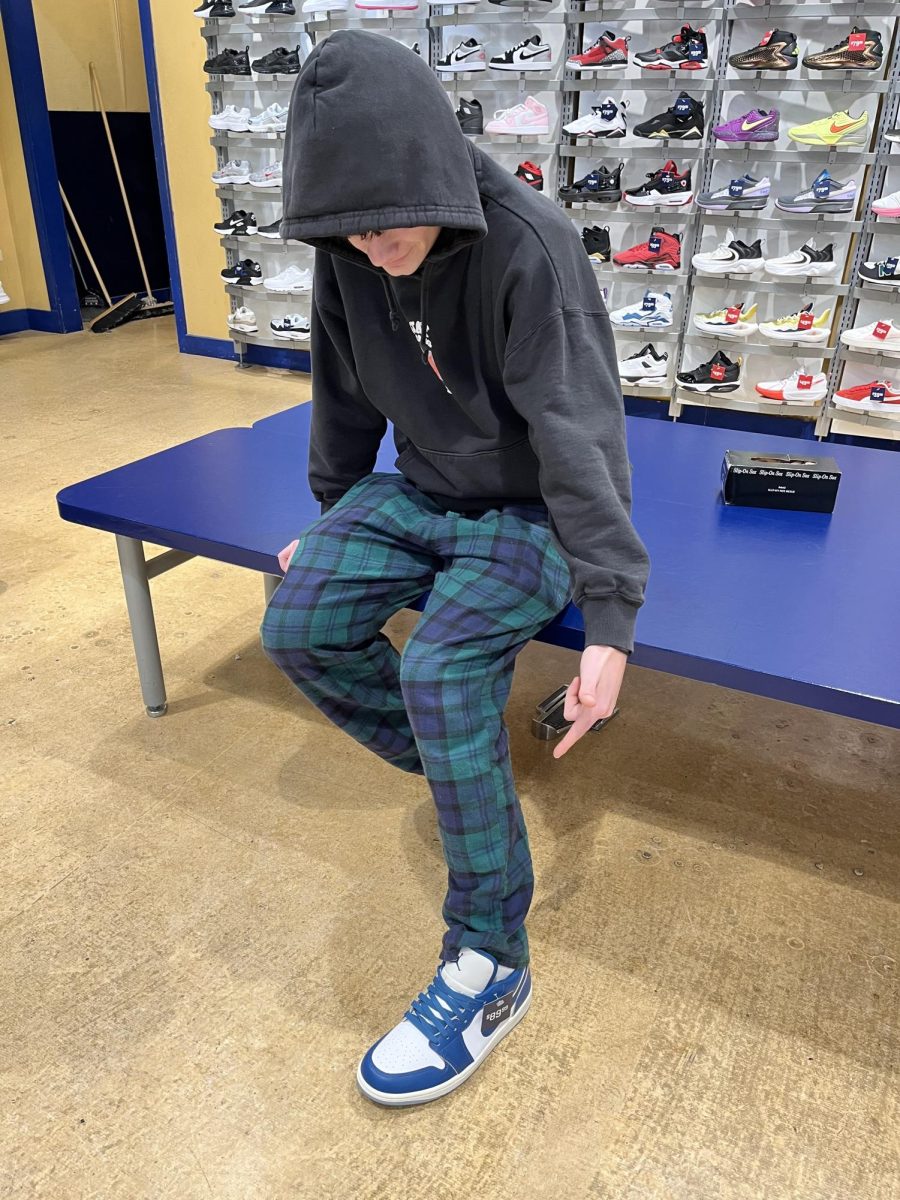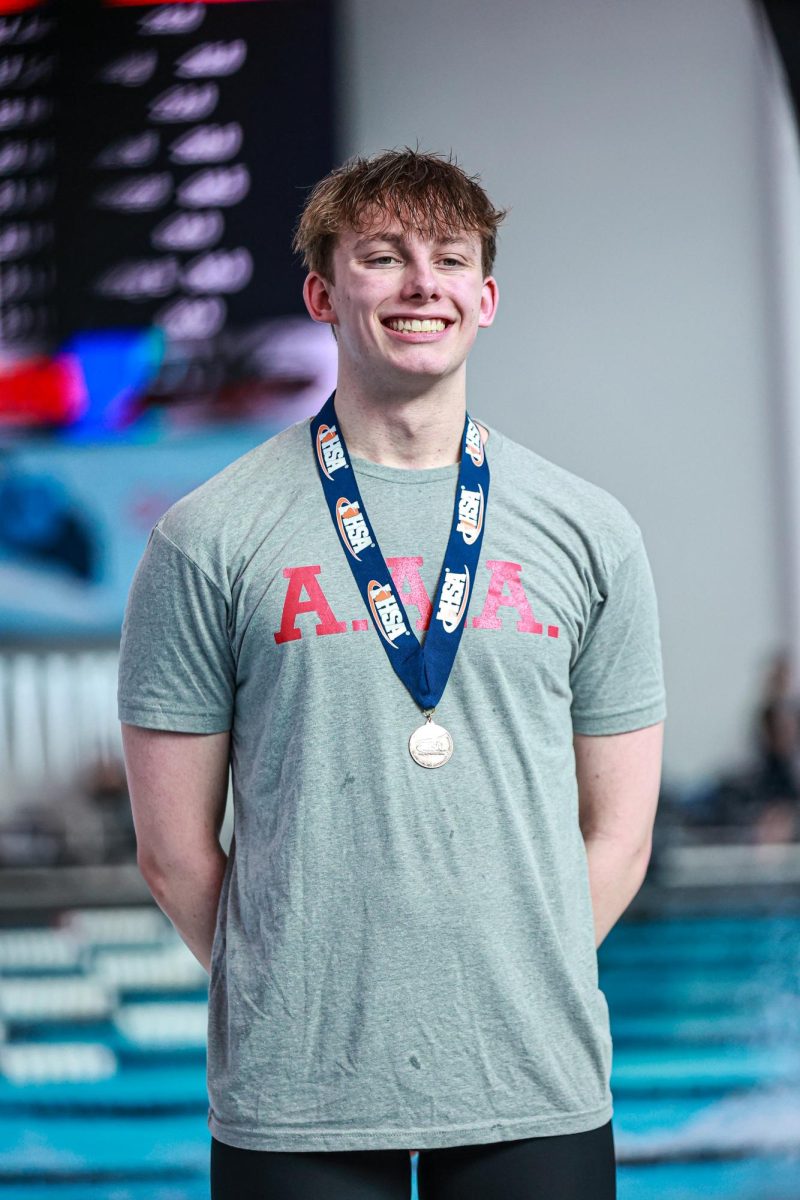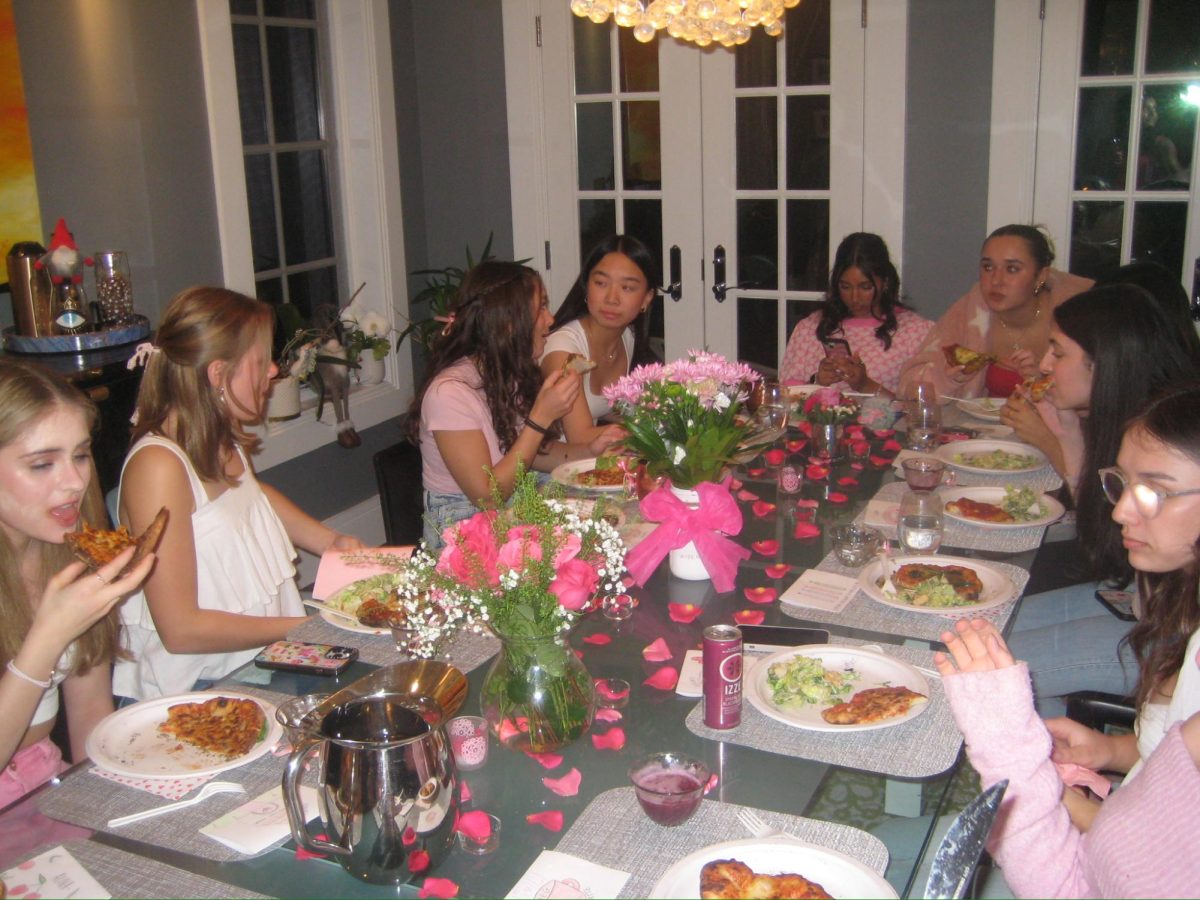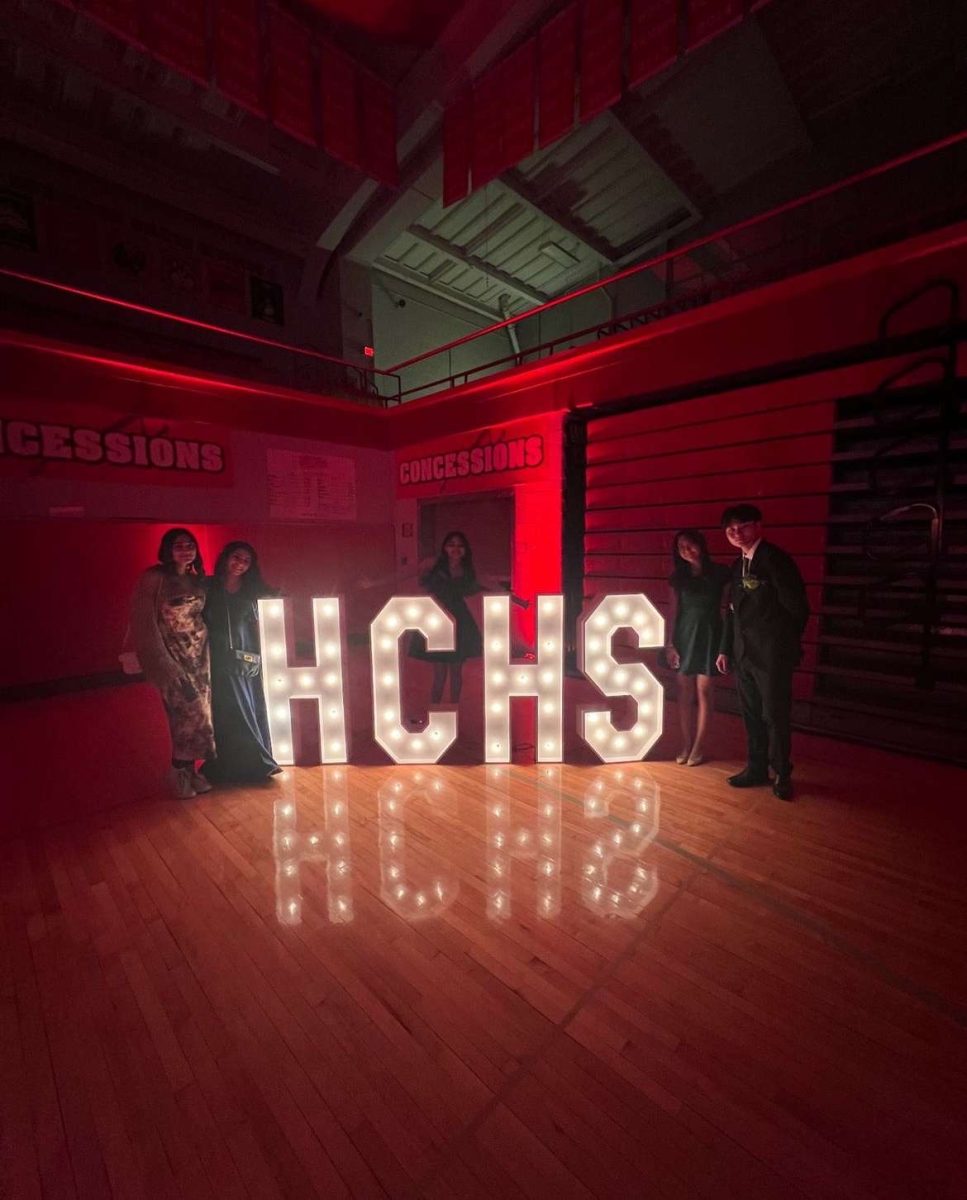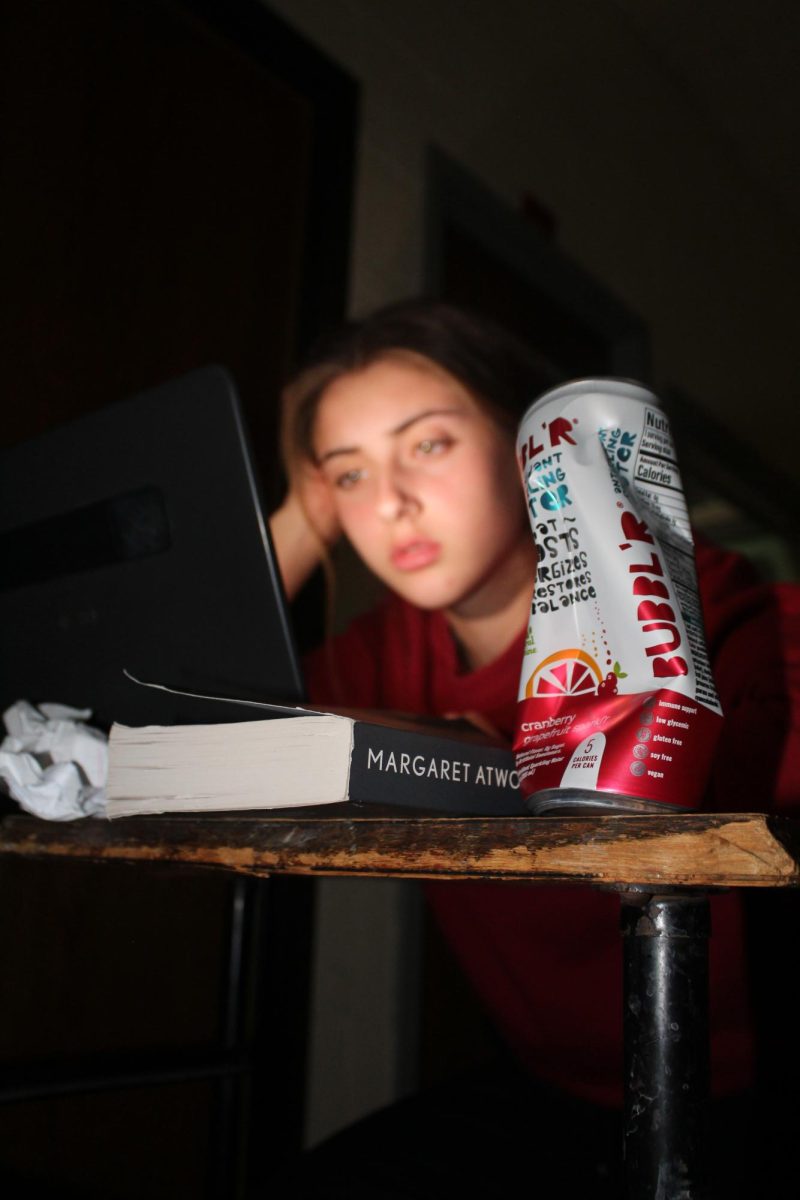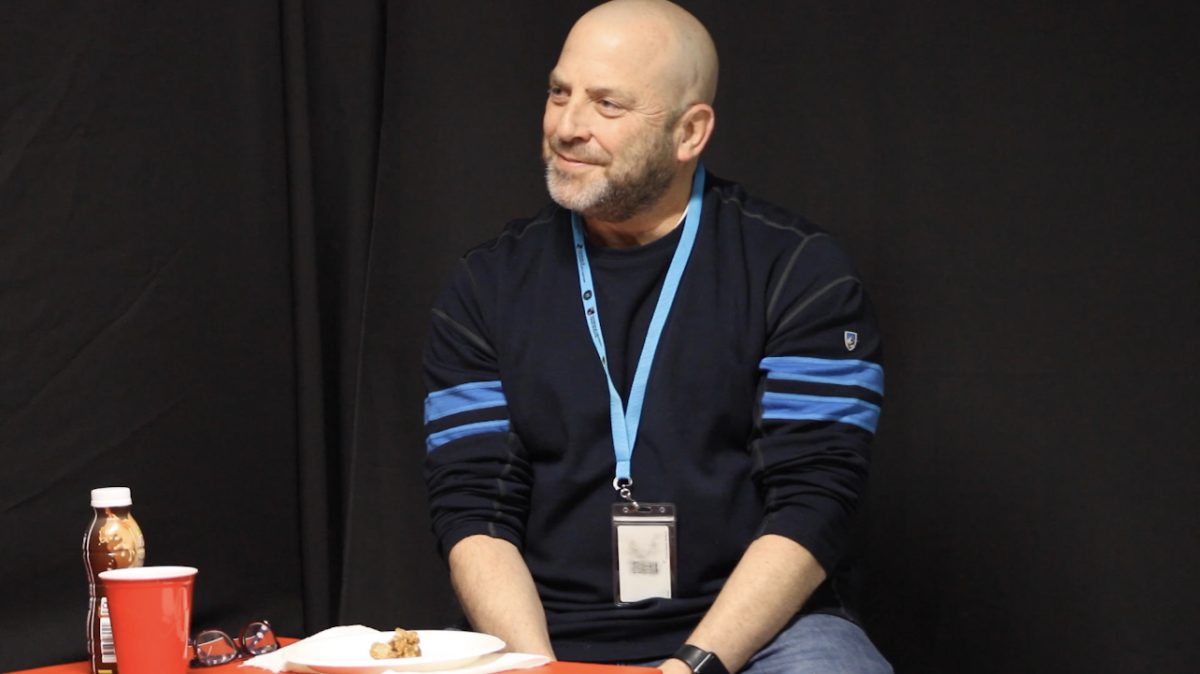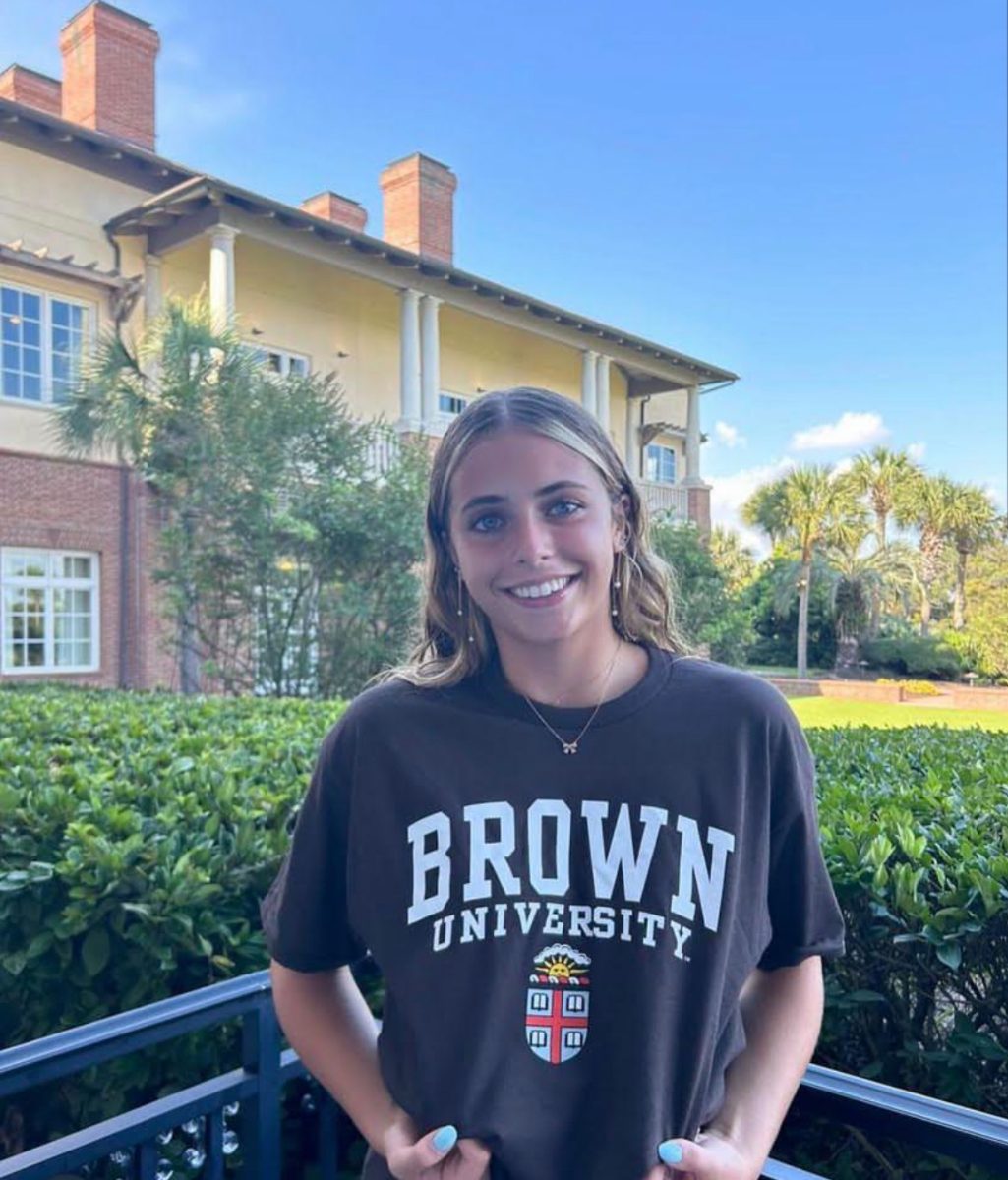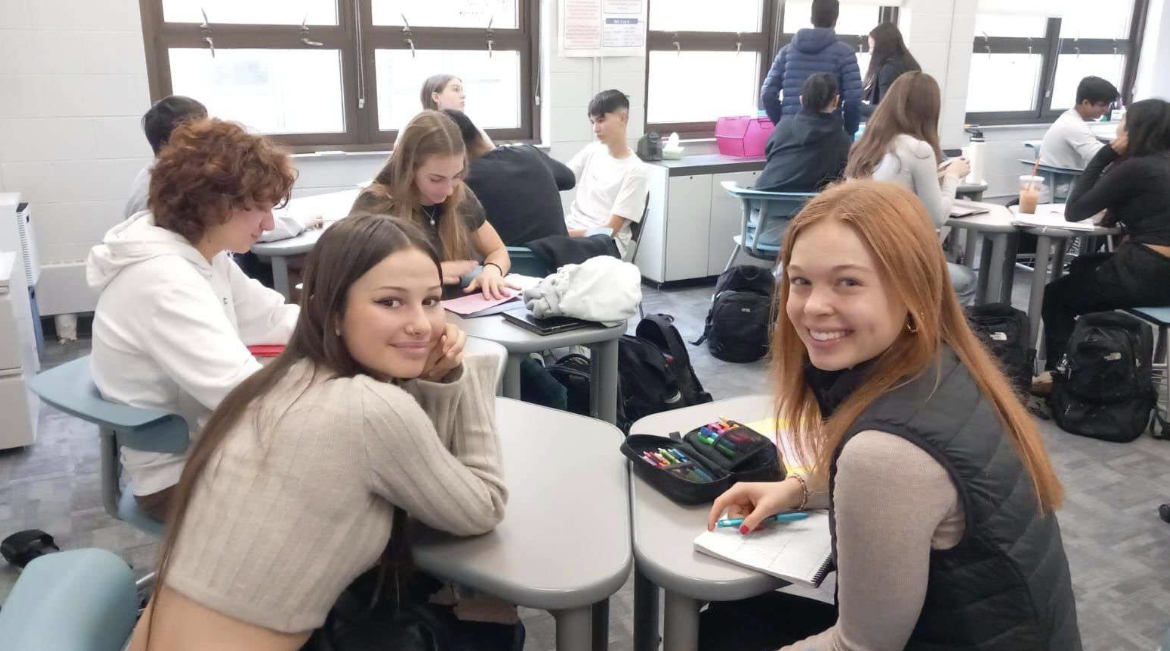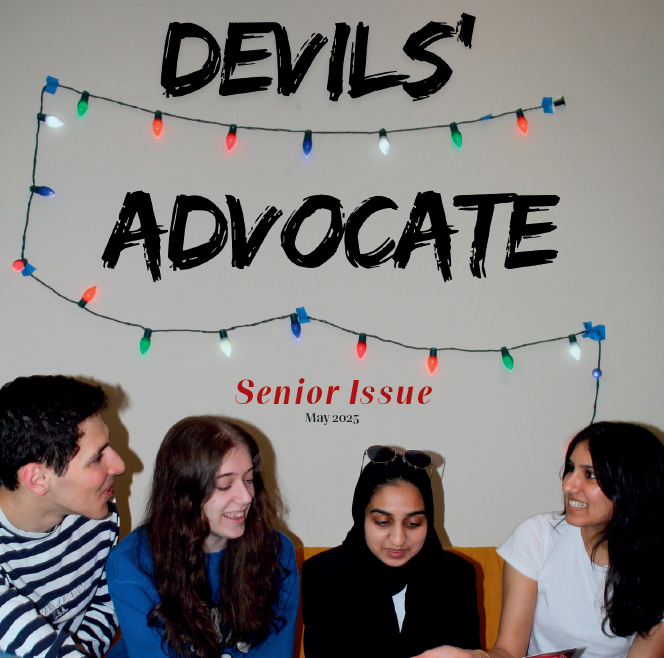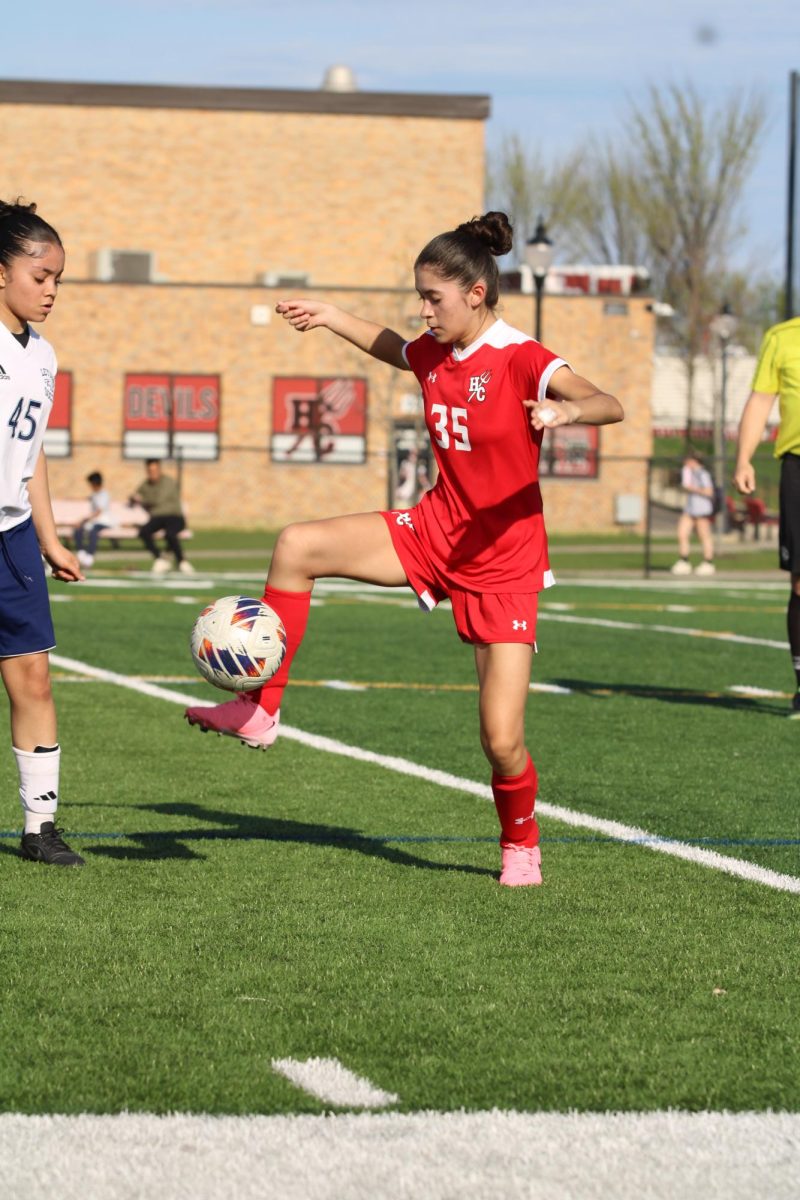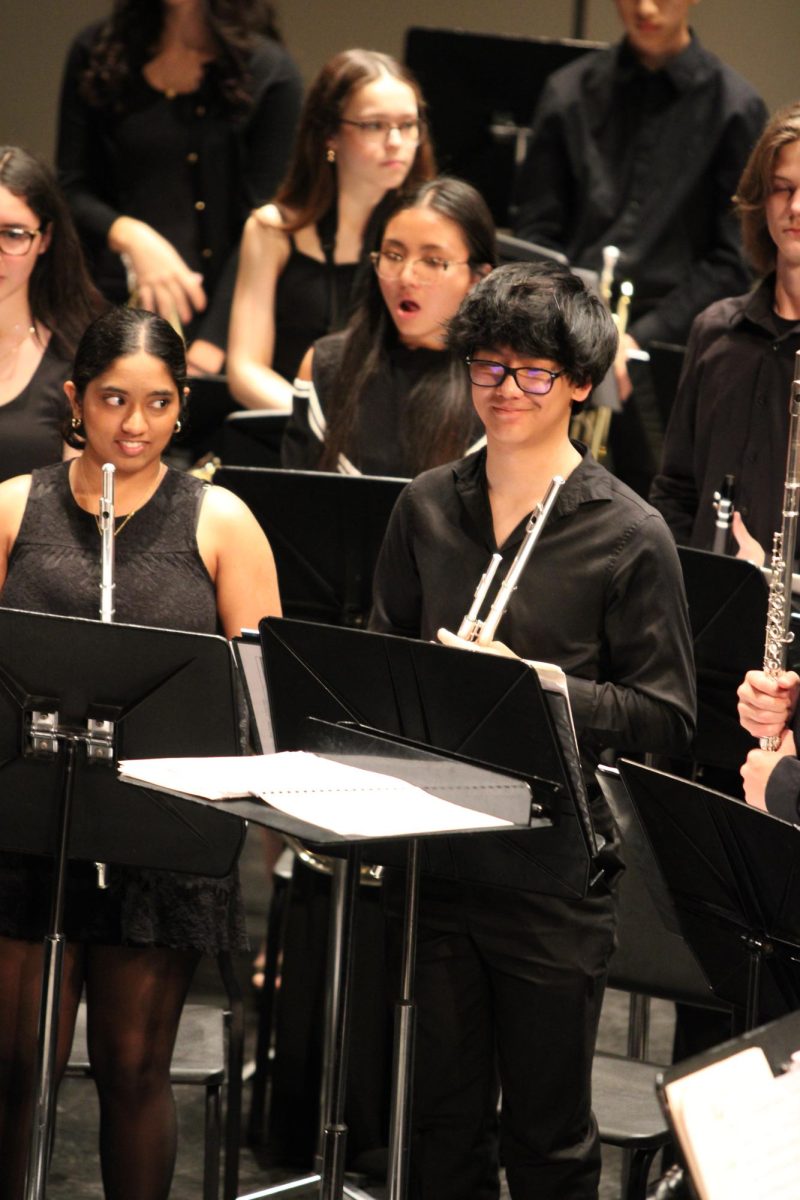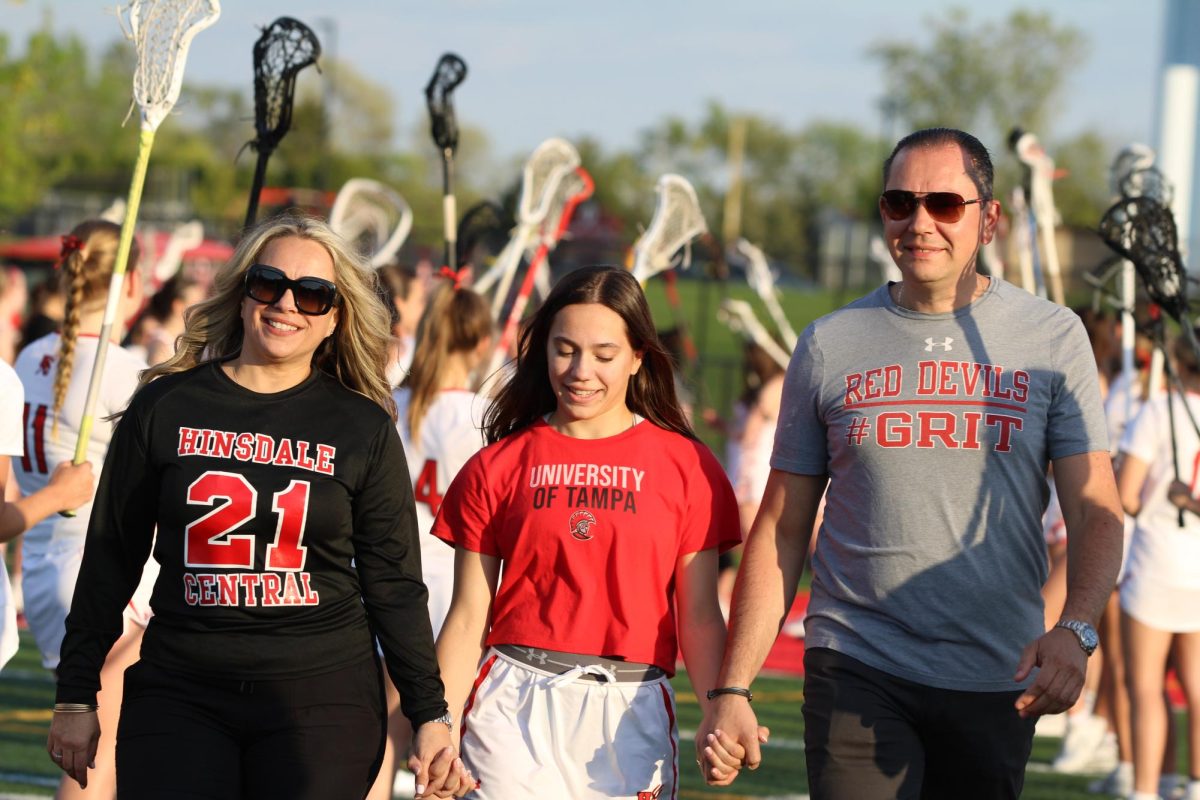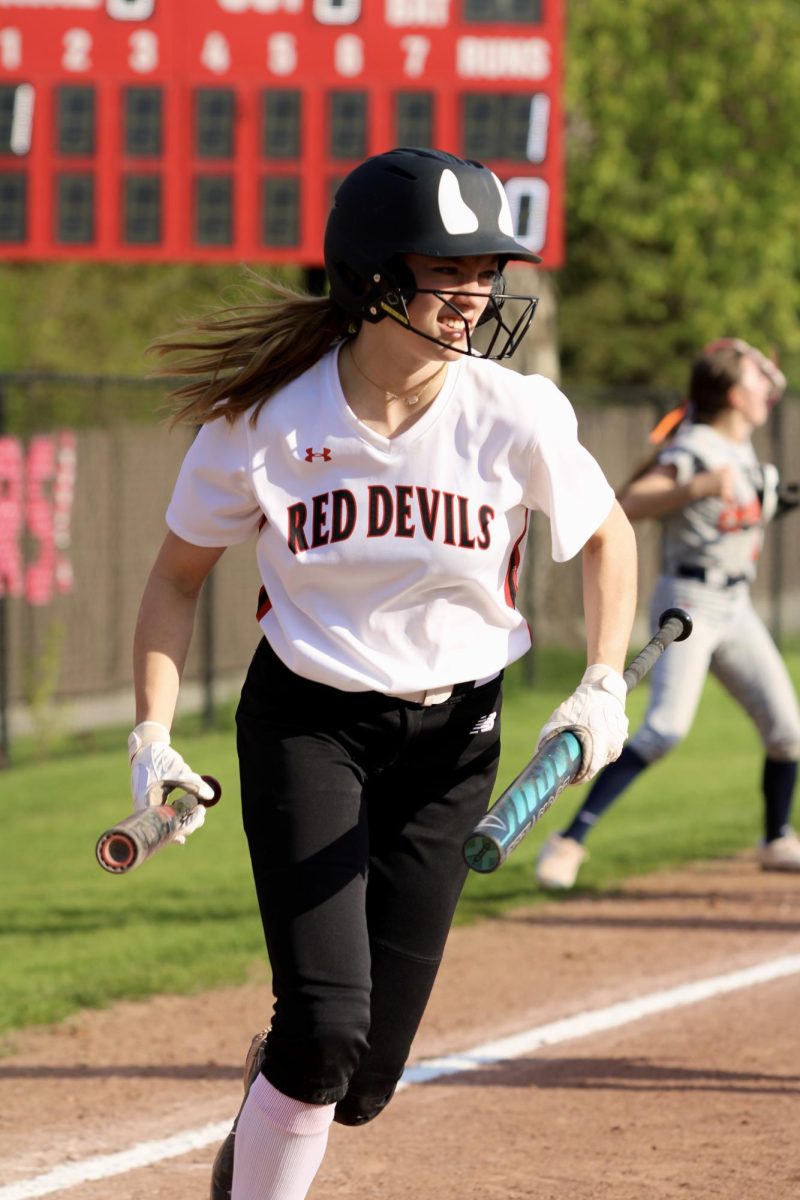Cristina Henriquez, Hinsdale resident, is an accomplished author who attended Northwestern University, and pursued writing to recount her father’s stories about immigrating from Panama to the U.S. in the 70s. She wrote “The Book of Unknown Americans,” which earned her a spot in The New York Times “2014 Notable Books of the Year” list, the Target Book Club” pick in March 2015 and on Amazon’s Ten Best Books of the Year. She’s also been featured in Best American Short Stories in 2018 and on Symphony Space Selected Shorts. Recently, Cristina Henriquez came out with a new book called The Great Divide, which is about the construction of the Panama Canal, highlighting the different perspectives of how the construction affected the characters’ lives.
Q: What inspired you to start writing?
A: My whole life I have loved to read. Throughout high school and college, I started thinking about writing as a career, but I didn’t know what that meant, or what that would look like. At first I thought I wanted to be a poet, and I took some poetry classes, but it turned out I was just really, really bad at poetry. Then I took a fiction class and it was like everything clicked. It was like the car kind of popped into gear, and I was off after that and haven’t looked back.
Q: Would you say that Northwestern has shaped your career?
A: Yes– they had a creative writing undergraduate major which I applied for, and I didn’t get in the first time, but when I applied again, at the goading of my poetry professor actually, I did. But if I had gone to a school that didn’t have a creative writing major, I’m not sure I would’ve done that. I might’ve just ended up an English major, and maybe I would’ve still had this dream on the side of writing. But I think going to Northwestern or going to a school that had that as a codified major was very helpful for me.

Q: How did you get your inspiration for your books?
A: Inspiration is a tricky thing. I don’t know if I have it in a general sense. Sometimes, I write because I want to figure something out. With The Book of Unknown Americans, I was thinking about my dad, an immigrant. I wanted to say something about immigrants and their lives, because an experience like his wasn’t represented in the media. The full story of the system of immigration and their lives wasn’t being told. I try to make sense of the world more than write from inspiration. Being aware of an unfair, one-sided narrative made me want to write about that injustice. The Great Divide was written out of that impulse. The awareness that the story of building the Panama Canal has been told from the United States’ perspective. But, there were many other people whose stories we never hear. I thought, how could I capture that in a novel?
Q: Connecting to that question, what is something that you want readers to take away from your stories, like themes or a central message?
A: I don’t think about that upfront. I’m just trying to tell a good story, trying to understand my characters and their motivations. I want to make everything satisfying for a reader and also make things uncomfortable at times, to provoke questions in their minds. But in terms of the message, I feel like that’s more for readers to figure out than for me. I just write the book and send it off into the world. Of course, all of my unconscious thoughts and preoccupations are all coming to the surface as I’m writing, but I’m not thinking of what I’m trying to deliver to a reader.
Q: What motivates you to continue writing?
A: Because the things that I write about are really personal to me, it took me five years to write The Great Divide, and it took about the same for The Book of Unknown Americans. And if you’re going to work on a project for that long, you have to find something in it that’s going to sustain you. For me, what I’m writing about are things that really hit home in a very personal and deep way.
Q: Since it took you five years to write both books, how much research do you think you did for these historical novels?
A: Book of Unknown Americans was much more contemporary, so I didn’t do nearly as much research. For The Great Divide, I researched exclusively for six months before I started writing, and then for another five years while writing the book too. I would write in the morning and then research every afternoon. Sometimes you’re just looking for small details and it can take days to find them. Sometimes I’m just reading because I’m trying to get a sense of the world so that I can write my way into it. It was a lot of research, but really fun to do.
Q: Going off the motivation question, I’m guessing that you’ve had writer’s block previously, and if so, what do you recommend for beginner writers on how to get rid of it or how to get over it?
A: In my experience, writer’s block boils down to some fear. To get over it, you have to figure out what it is. It could be fear that you’re not good enough, that people aren’t going to like it. Identifying it is step one to getting over it. There are also some hacks. I had probably the worst bout of writer’s block of my life between Book of Unknown Americans and Great Divide. Changing my writing environment changed that. I started writing in notebooks instead, and I wrote the entire novel for The Great Divide by hand. Writing by hand in notebooks was extremely freeing, it helped me get through writer’s block significantly. I don’t think I’ll ever write first drafts on a computer again. It was necessary to change something radically.
Q: How did you get through the rejections from the long process of being traditionally published, and how do you think your book got so successful afterwards?
A: I have had hundreds of rejections in my career. I have a whole file of them, just as a reminder to myself of the things that I’ve had to go through along the way. It’s been a long process, but this is my fourth book, and everyone gets a bit more successful incrementally. To get to where you want to get, I think you have to be willing to go through those rejections. I had a teacher who said you should try to get 100 rejections from magazines a year. Because if you’ve gotten that many, then you’ve probably had two stories taken and that’s great. You have two stories out there.
Q: Why did you decide to write specifically about the Panama Canal?
A: I wrote about it because I grew up going there to visit my family. My dad’s side is from Panama, so we’d visit them and go to the canal. As a kid, I didn’t have any concept of what I was seeing. When I got older and started to understand the significance of the canal, not only to Panama but to the whole world, it became a fascinating topic to me. While reading about it, it became clear to me that this story, similar to the canal, had been constructed by the U.S. As someone who’s half Panamanian, it was really interesting to think about what life would’ve been like living through that. Then I learned that people from 90 different countries came to help build it. I wanted to know who they were and why they’re not a part of the story. I wanted to tell a different type of narrative about this project and uncover the real story below the surface.
Q: What are some of the biggest lessons or takeaways that you’ve learned from all your years of writing and going through like the ups and downs of being a writer?
A: A piece of advice I always come back to, from my grad school teacher, is to have faith in the process, not the product. You can get really focused on the physical book that will come. But that’s less important than the process of doing it, and the things you learn about the book, about writing and about yourself along the way. You also have these moments of joy when you’re writing. You write something that’s somehow a little bit better than what you thought you could write; you capture in words something that was a very vague idea. That’s the best writing day. Remembering that is the point of doing this rather than having the physical product. It’s exciting to hold your book, of course. But what’s most joyous about this career is those days when you write something that just feels like you’ve figured it out.
Q:When did you know you wanted to be a writer and what keeps you going?
A: I didn’t know until high school. I didn’t know what it would even look like. My dad was really scared for me to be an English major. You’ll never get a job, he said. But I knew that I loved writing. I loved sitting down and making characters talk to each other, experimenting with language and trying to do weird things. To me, that was so pleasurable that I decided I’d be an English major anyway. The writing program at Northwestern set me on the path of being a writer. But, it’s a long process. You’re five years into your writing cave, working on a book that you have no idea if you’ll finish. If you finish it, will anybody like it? But you keep going because you have an innate drive, not only to tell the story, but because of the pleasure of being with language. For me, hearing rhythms in my mind as I’m writing helps me keep going. It’s a sort of music for me.
Q: So, in your mind, what do you think it takes to become a successful author?
A: I think it takes a lot of discipline. No one’s holding you accountable for doing work. You have to figure out how to get yourself to the desk every day and work. Some momentum that keeps you in the headspace of the project that you’re working on. A lot of it is trying to figure out how you work, what motivates you. I’ve done lots of tricks like lining up Skittles. If I write one paragraph then I eat one. You have to figure out a way to get yourself to work. We all want to be inspired, but if you’re waiting for bouts of inspiration, you’re not going to get much done. You just have to show up every day.




